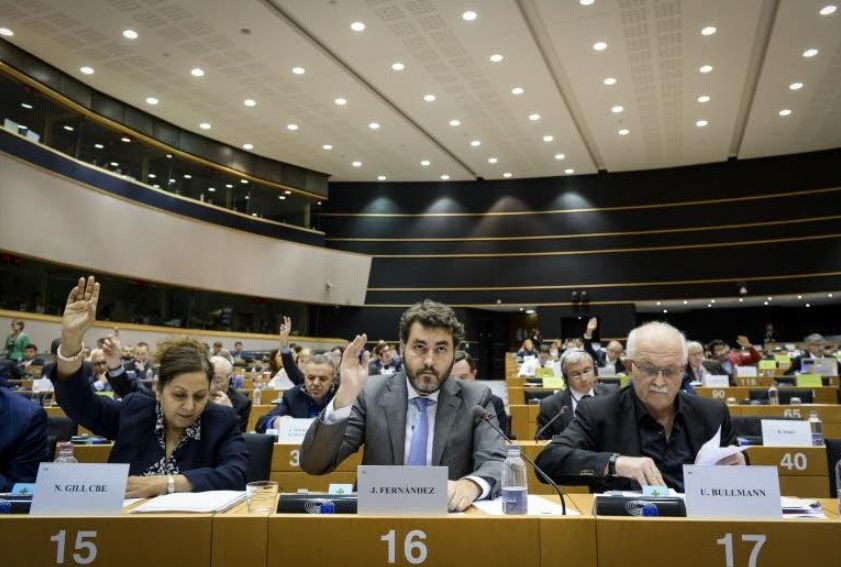The European Parliament passed a preliminary version of its annual report on the European Central Bank, which includes a number of criticisms and proposals that the QE for People campaign has been making.
On Tuesday 21 November the Economic and Monetary affairs committee of the European Parliament passed its annual report on the European Central Bank’s monetary policy. This non-legislative report is a core instrument for the Parliament to exercise its scrutiny of the ECB. The report’s final adoption will take place in Strasbourg at a plenary session scheduled mid-January, after an exchange with the ECB President Mario Draghi.
The amended report produced by Spanish MEP Jonas Fernandez makes a number of points that we support.
QE is fuelling inequality
First, the report clearly acknowledges the ineffectiveness of the ECB’s policies when it states ‘the current inefficiencies of the monetary policy’ require further examination to develop better policies for the future. The report also correctly notes ‘that persistent inequality in the EU may harm a sound and inclusive economic development.’ As we have argued, this calls for more radical measures by the ECB, such as Citizens’ Dividends where the ECB could inject a quarter as much money as under quantitative easing (QE) and distribute €1,000 to all adult citizens in the eurozone.
ECB’s Corporate QE requires greater transparency
The report is justifiably critical of the ECB’s Corporate Sector Purchase Programme (CSPP) citing the scheme as ‘directly benefiting larger corporations,’ as we have argued all along. QE for People has previously worked with MEPs on the CSPP’s lack of transparency. It is very encouraging that MEPs keep demanding more efforts by the ECB in the report.
ECB is bound by the Paris Agreement
The report states that ‘theECB as an EU institution is bound by the Paris agreement’ which chimes with our demands to the ECB to take further action against climate change, as other central banks have done.
ECB should consider digital currencies
Interestingly, the report also touches on digital currencies, a topic that is subject to greater public debate. The report calls on the EU Commission and the ECB to study the potential of digital cash, or ‘central bank digital currency.’
ECB must be held more accountable
Finally, the report rightly suggests that the ECB must be held more accountable to the EU Parliament. For example, the “monetary dialogue” hearings could be improved to allow more fruitful exchanges with the ECB President. The report also suggests that the EU Parliament could have a stronger voice in the appointment process of ECB board members if “a balanced shortlist of candidates” would be submitted to the EU Parliament for consideration.
The European Parliament could push the ECB further
Whilst we support the report overall, we believe the European Parliament could be making explicit suggestions to the ECB, such as:
Redesigning the Corporate Sector Purchase Programme to better support investments in the real economy and to be aligned with the EU’s ratification of the Paris agreement
Designing new policy instruments aimed at channeling money directly into the real economy such as direct transfers to households
Closer cooperation between the ECB and European Investment Bank to make QE support investments
More transparency and inclusion of civil society within the ECB’s contact groups
Head of QE for People campaign Stan Jourdan says:
“We want to congratulate MEPs for coming up with such a forward-looking report, which will pave the way for innovative thinking in the ECB’s monetary policy and its institutional setup. It shows that the public debate surrounding the ECB is finally making its way into the institutions.”
The QE for People campaign calls for a large majority to stand behind the report when voting takes place in January, to ensure those words can be pushed forward into action both by the ECB and by Parliament in its role of scrutinizer.
- Author: Stan Jourdan on November 23, 2017
- Source: http://www.qe4people.eu/european_parliament_report_ecb_policies


